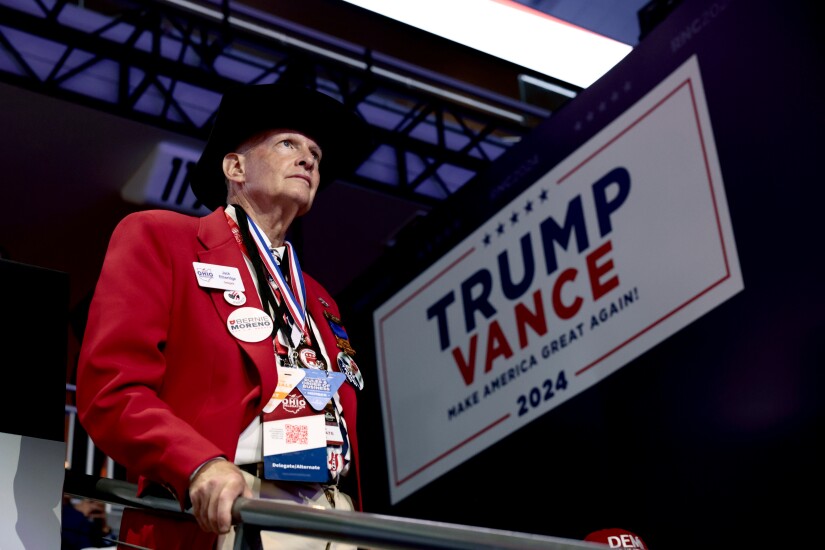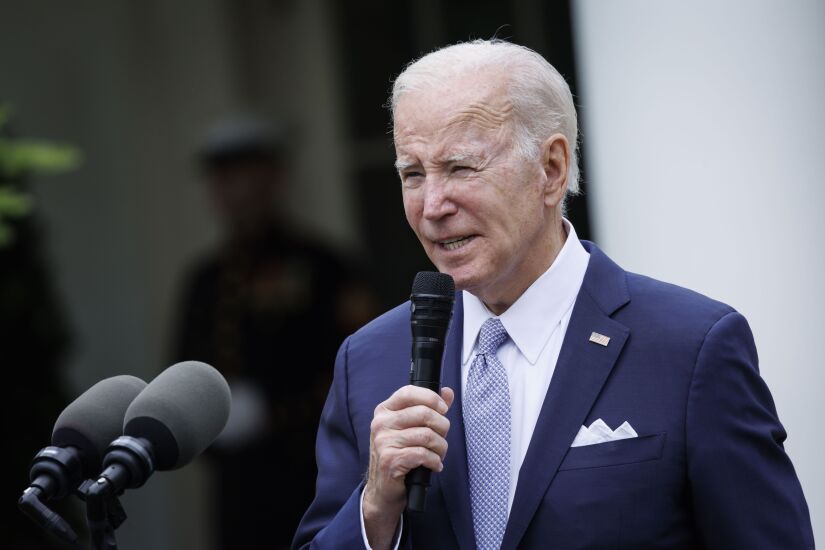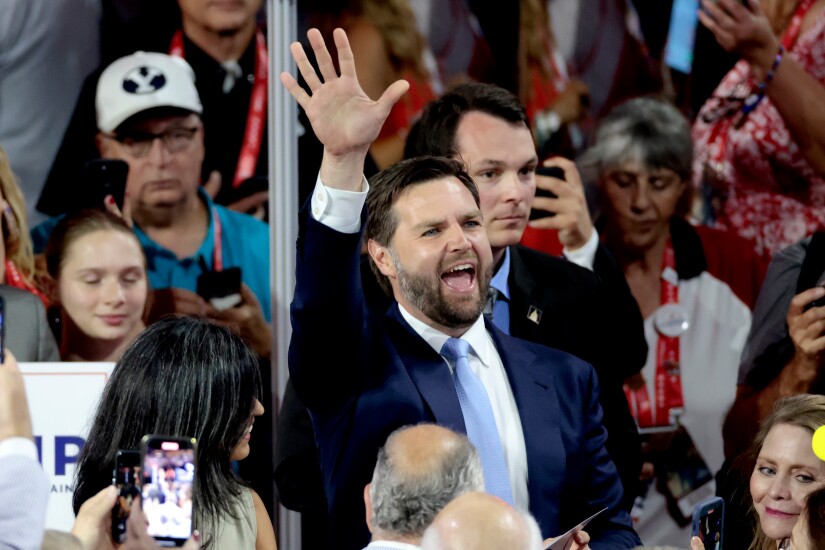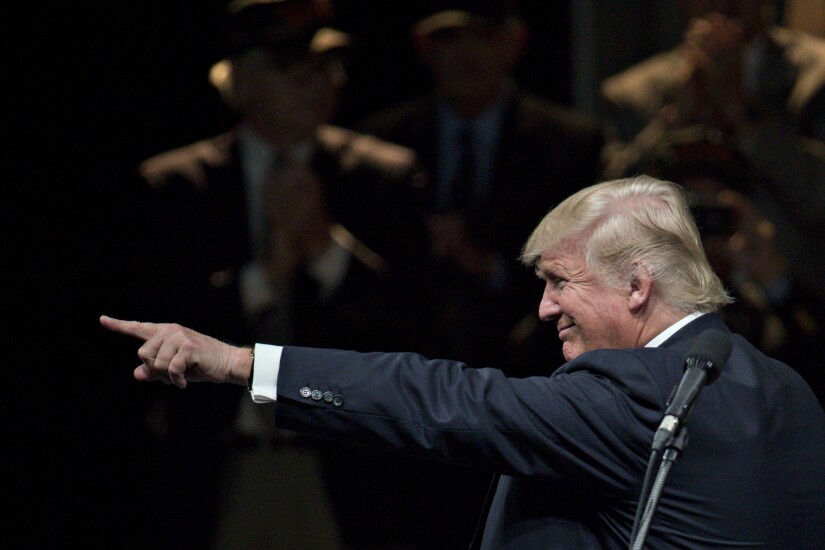WASHINGTON — The 2024 election turned on its head this week, as a galvanized former President Donald Trump, bandaged ear from a failed assassination attempt, officially accepted the Republican nomination for the presidency.
President Joe Biden, meanwhile, retreated into his Rehoboth beach, Del., home on Thursday, isolating with a recent Covid diagnosis as political pressure mounted for him to step aside amid concerns from his own party about his mental and physical ability to withstand another four years of political service.
The dramatic events of the week bolstered the Republican ticket, where Trump is now
Here's four takeaways from the week and what it bankers should glean from it:










